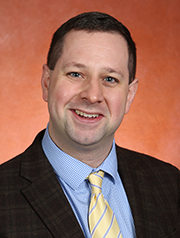
Moyamoya disease (MMD) is a rare progressive congenital disorder characterized by blockage of the internal carotid artery at the base of the brain. The name, which is Japanese for “puff of smoke,” describes the defining feature of the disease: a tangle of tiny blood vessels that form to compensate for reduced bloodflow to the brain. There is no cure for MMD, and nearly all patients suffer repeated strokes, typically beginning in early childhood. It is one of the leading causes of stroke in children worldwide.
Recently, sequencing efforts from numerous groups converged on mutations in a single gene, RNF213, as the cause of MMD. Despite this compelling finding, the molecular mechanism by which RNF213 mutation triggers disease remains entirely unknown because virtually no information exists on RNF213 function.
The long-term goal of the proposed project is to determine the mechanistic basis for RNF213 dysfunction caused by moyamoya disease-associated mutations. Specifically, we aim to understand the normal cellular functions of RNF213, and how these functions are changed in RNF213 mutant cells. Such knowledge will pave the way for more effective diagnosis of MMD, and may reveal new ways to treat or prevent disease.
Our Specific Aims are to: 1) characterize key structural and functional elements of RNF213, 2) identify substrates of RNF213 enzymatic domains, and 3) evaluate the impact of selected disease-associated mutations on the RNF213 interactome. Together, these studies will yield a systems-level view of the RNF213 functional interaction network, and will provide the first molecular and cellular insights into the pathophysiology of RNF213 dysfunction in MMD.
The successful applicant will be positioned to make important discoveries in a new area of disease research, and will acquire training in bioinformatics analysis, human cell culture, protein expression and purification, enzymatic assays, proteomics, and phenotypic analyses.
Work in the Tomko lab spans many disciplines, including cell, molecular, and structural biology, protein engineering, biophysics, and pharmacology. Robert works directly with his trainees to develop projects that meet their research interests, technical/experimental goals, and professional needs. Robert takes pride in training the next generation of talented scientists!

